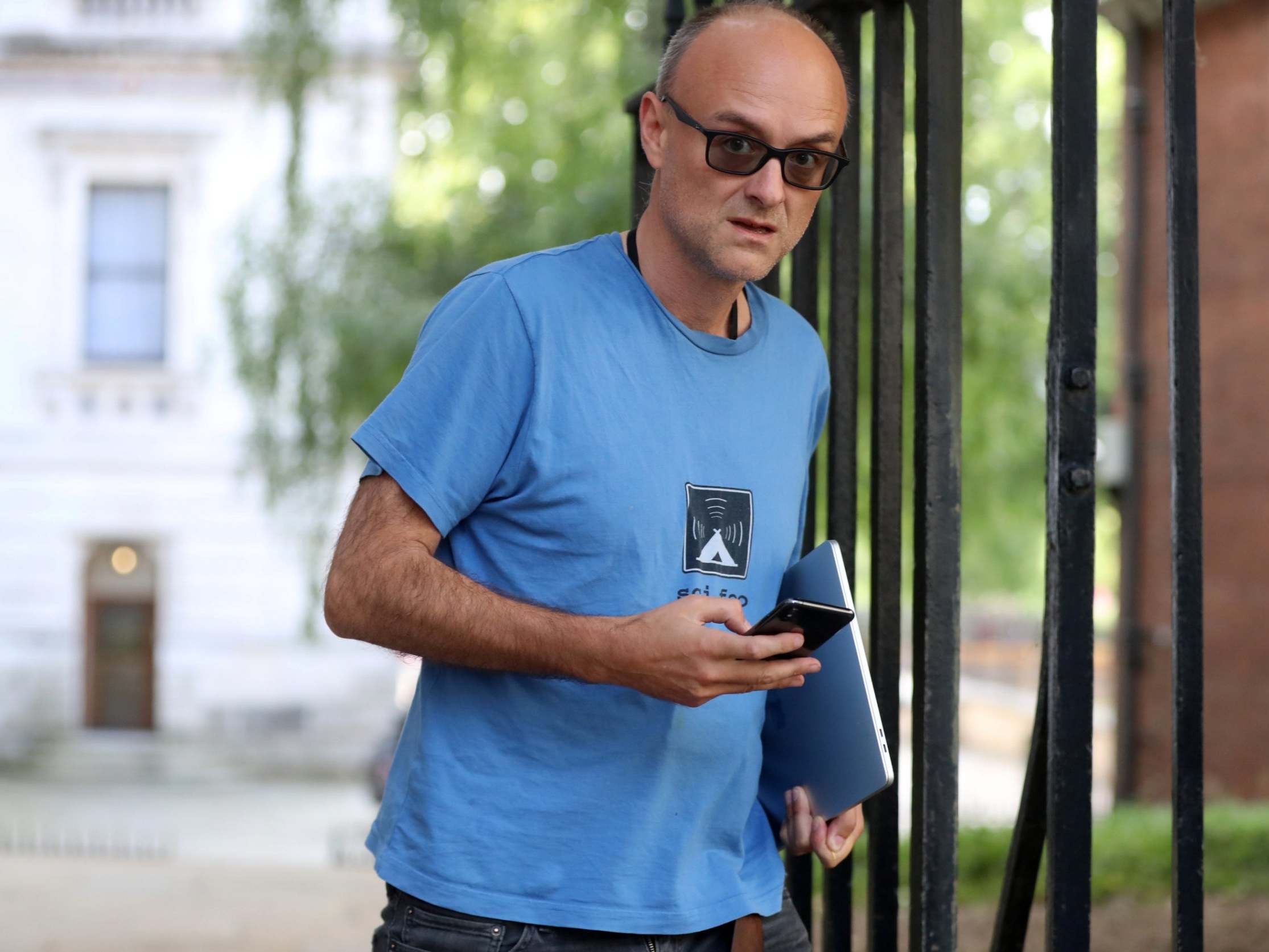Dominic Cummings’s surprising respect for the law is a breath of fresh air
We should be grateful to the prime minister’s former chief adviser for laying out the complex reality of law, morality and government decision-making so clearly


A big welcome for Dominic Cummings to the ranks of the pundits. He hasn’t always been polite about us political commentators – “middlebrow entertainment” – but he has as much right to earn a living as the rest of us, so there he is on his subscriber blog doing what none of us thought to do: making fun of the prime minister’s “levelling up” speech.
Apparently, Boris Johnson is “good at the niche market of after-dinner speeches. He is not good at political speeches partly because he is not interested in government.” Cummings tells us that levelling up is “just a vacuous slogan”. Nobody understands it, and Johnson ought to “focus on what we know works”. It is almost as bad as “Global Britain”, another slogan that “The Trolley” thought up himself, and not nearly as good as “Get Brexit Done” or “Peace, Bread, Land”.
Pundit Dom is a good commentator, with a vivid turn of phrase and an erratically brilliant understanding of how power works. But his real value is in providing an inside account of government, from someone who only last year had a close working relationship with the prime minister.
Thus he is interesting on how Johnson makes speeches, with Carrie “whispering in his ear ‘trust your instincts’”, but this week’s commentary contains more important insight into the role of legal advice in government. After six paragraphs of entertaining analysis of The Speech, Cummings’s blog post turns to an “interlude” on the Northern Ireland amnesty.
This week Brandon Lewis, the Northern Ireland secretary, surprised everyone by announcing plans to end prosecutions for all Troubles-related cases before 1998. Cummings says: “I’ve had texts from people inside No 10 asking, ‘Can you shed light on the background to this?’” It turns out that this is a question to which the answer is yes.
The decision to offer an amnesty to former terrorists as well as soldiers was not a political one, as Cummings says, but the inevitable result of a manifesto promise to stop the prosecution of service personnel for things that happened in the last century.
“The government’s legal advice was clear that an amnesty just for UK troops would be overturned by the UK courts,” he writes. The European Convention on Human Rights (ECHR), as translated into UK law by the Human Rights Act (HRA), requires that any amnesty would have to apply to everyone, soldier and terrorist alike.
It is a paradox that Cummings, who rejoiced in his reputation as a hell-raiser who used threatening to break the law as an instrument of policy, should have been working hard behind the scenes to make sure that the lawyers were satisfied.
He makes the critical point that legal advice is not holy writ. Sometimes it is a “convenient tool” for civil servants, deployed “to avoid aggressively seeking a solution officials don’t want to contemplate”. In my experience, the best ministers see legal advice as something to argue with. Jack Straw, home secretary and foreign secretary in the Blair government, has a good account in his memoir of his relish in challenging the advice he was sometimes given.
Nothing is absolute in law. After all, Cummings reveals in passing that “our official legal advice on proroguing parliament was as close to 100 per cent as legal advice ever is” – and yet the prorogation was ruled unlawful unanimously by the Supreme Court. But in the case of a one-sided Northern Ireland amnesty, Cummings says the government sought alternative advice from “top notch external lawyers”, who confirmed the original advice that “there is no way this will fly”.
If the government were to amend the Human Rights Act, people could still appeal directly to the European Court of Human Rights, so the government would have to repudiate the convention as well. “My view is we should leave the ECHR and scrap the HRA,” says Cummings. But he reports that this wasn’t Johnson’s view. After the election, “he was very much in ‘now Brexit is done it’s time for me to make up with the London power people’ mode”.
Having a battle with the London Remainer establishment over tearing up the European Convention “would be more popular than Brexit and much easier politically”, says Cummings the Commentator, sounding suspiciously like the kind of superficial Telegraph pundit he derides Johnson for being. It would indeed be a way of prosecuting the endless Brexit war, possibly to the government’s advantage.
I don’t know if Johnson shrank from this iconoclasm because he is a coward who wants a quiet life, as Cummings implies, or because there are other calculations. It may be that the convention, however frustrating politicians sometimes find it, is actually right. It may be right in principle that, although terrorists and soldiers are not morally equivalent, to treat one category differently in law would be wrong.
We should be grateful to the prime minister’s former chief adviser for laying out the complex reality of law, morality and government decision-making so clearly. I for one am looking forward to his next instalment.

Join our commenting forum
Join thought-provoking conversations, follow other Independent readers and see their replies